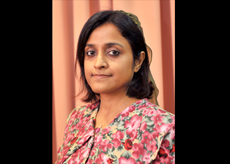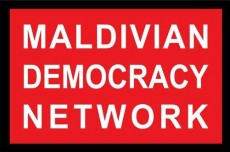With additional reporting by Mariyath Mohamed
Youth wing leaders from across the political spectrum have criticised the government’s youth policy as cabinet members argue that the government has “hit the ground running” in its attempts to tackle youth issues.
Youth wing leaders from both government-aligned and opposition party have suggested policy has been formulated without youth participation.
“The government’s youth policy is not very clear, in fact it comes across as being rather shady,” said Jumhooree Party Youth Wing leader Moosa Anwar.
The comments come in response to the Youth Minister Mohamed Maleeh Jamal’s assurances that the government – elected on a platform of youth and economic policies – would soon fulfill all its prior pledges.
“With an influx of five times of the budget of previous years, the government of his excellency President [Abdulla] Yameen came with a promise to address the youth-related concerns that have been sadly been neglected in the recent past,” said the minister.
Speaking at this week’s ‘Regional Consultative Meeting to Finalise the SAARC Youth Charter and Action Plan’, Maleeh said that the government had already drafted a youth bill to ensure that rights of young Maldivians are protected.
The charter aims to promote the potential of young people with “their full participation” explains the charter, with the aim of influencing regional youth policies in the areas of environment, gender equality, education, employment, and health.
The SAARC nations are expected to sign the charter during the eighteenth SAARC summit scheduled to be held in November 2014 at Nepal.
A national health strategy for the youth has been drafted with assistance of UNFPA, he explained, assuring the strategy to address issues such as prevalent drug abuse would be endorsed very soon.
Speaking at the same ceremony, Minister of Foreign Affairs Dunya Maumoon said the youth’s meaningful participation in the development process should be ensured.
“We must eradicate violence and abuse of young people, especially girls and other marginalised groups. We must not let youth be deprived from an education or access to decent work. We must invest in the health and well-being of the youth,” said Dunya.
Youth response
The opposition Maldivian Democratic Party (MDP)’s recently elected Youth Wing President Mohamed Azmeel responded by saying that the government has neglected to include opposition-aligned youth in developing policies.
“We have not been consulted over this youth charter or even on national youth related policies or programmes,” Azmeel said, noting that with over 26,000 registered members the MDP Youth Wing is the biggest youth organisation the country.
A recent democracy survey by Transparency Maldives revealed the MDP to have the largest number of under-35 year-olds of any political party. The most recent census (2006) data revealed under-25s to represent over 50 percent of the country’s population, with a new survey to be taken later this year.
Azmeel also expressed a lack of faith over the government’s capability to fulfill it’s pledges to youth.
“So far they have failed in providing any positive sign of fulfilling those pledges. For instance we still don’t know how they are planning to create the promised 94,000 new jobs. So from what we are seeing now, I don’t have any hope they would do any of that,” said Azmeel.
Pro-government Adhaalath Party’s Youth Wing leader Ali Rasheed also said his party had been left out of the government’s youth-related programmes, while Jumhooree Party Youth Wing leader Moosa Anwar argued that the government’s policy has been created without youth participation.
“The government does not appear to be doing much to increase actual youth participation,” he continued.
Anwar revealed that he was currently attending a youth-related conference in Sri Lanka, to which the government had sent Youth Ministry employees as ‘youth delegates’.
He suggested that said, instead of being empowered, the youth were being used as a “street force” by all political parties.
“They keep the youth quiet by naming us ‘leaders of tomorrow’ and holding obscure workshops in the guise of empowering us. However, there has so far been no practical application of youth empowerment.”
“It will not do just to talk about a youth city and to promote that idea on social media. If the government is sincere about working to empower youth, they must allow us to have a say at the decision making or policy levels,” he said, suggesting a youth parliament as a possible way of achieving this.
President Yameen’s own Progressive Party of Maldives have no youth leadership after its last Youth Wing President Ibrahim Nazim resigned during the 2013 presidential elections saying he was unable to reach Yameen to discuss youth involvement in the presidential campaign.
The youth minister was not responding to calls at the time of publication.
 Meanwhile, Minister of Foreign Affairs Dunya Maumoon stated that the Maldives has given “greater impetus and focus to strengthening our systems and institutions to better safeguard human rights and fundamental liberties” since former President Maumoon Abdul Gayoom began the introduction of democratic governance in the country in 2004.
Meanwhile, Minister of Foreign Affairs Dunya Maumoon stated that the Maldives has given “greater impetus and focus to strengthening our systems and institutions to better safeguard human rights and fundamental liberties” since former President Maumoon Abdul Gayoom began the introduction of democratic governance in the country in 2004. maintaining that it is the result of having an elected government in place after a politically turbulent period.
maintaining that it is the result of having an elected government in place after a politically turbulent period.